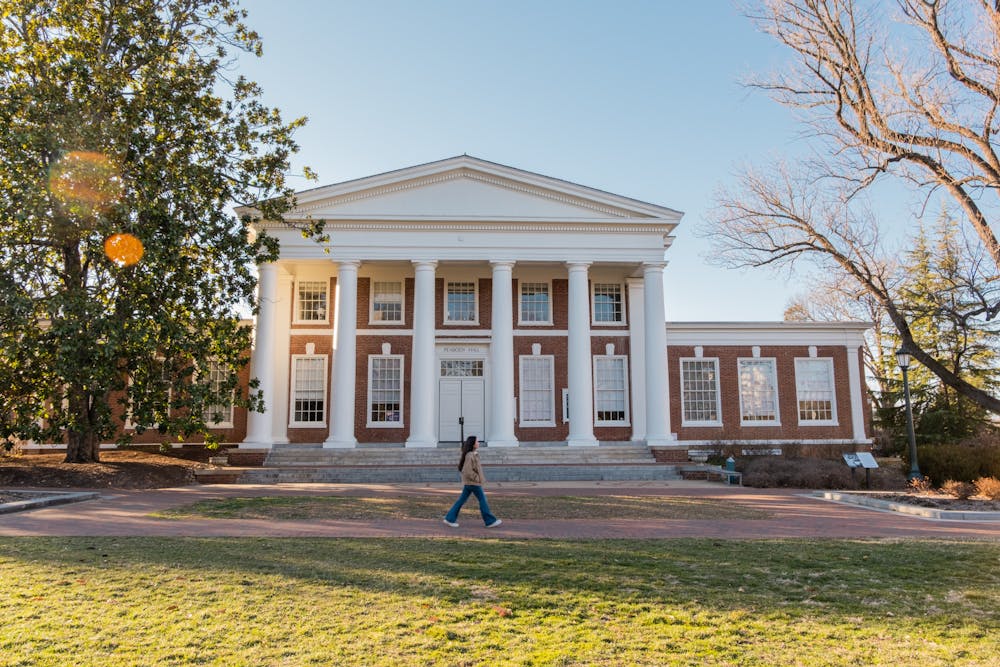Transfer students are an essential part of the University’s student community, oftentimes diversifying the socioeconomic composition of the University. The University’s transfer program admits a cohort of around 100 transfer students per year. However, while current programs do exist to aid transfer students, such efforts have failed to accommodate transfer students' social needs, negatively affecting their mental health and academic experiences. As transfers navigate an unconventional college experience, it is imperative that the University creates more accessible programming that fully incorporates transfer students into the fabric of our community.
University orientation is an integral part of the college experience, a needed introduction to student life and academics prior to move-in. Over two days, first years experience lively student-life rotations and build friendships within their orientation group and hall, before concluding their orientation with class enrollment. This experience is seminal to first-year students, creating many friendships on Grounds while also connecting students to upper-year mentors. In short, welcoming students to the social heartbeat of Grounds is prioritized in the regular first-year orientation schedule.
However, for transfer students, orientation leaves significantly more to be desired — instead of the two-day intensive schedule that first-year students experience, the transfer orientation is restricted to just a day. Rather than deliberately building a sense of community, the Transfer Student Orientation distills the welcome down to class enrollment and significantly simplified introductions of available resources. Though the University offers other materials to transfer students over the summer, such as newsletter updates, they severely miss the mark on the one in-person opportunity to build community before arriving on Grounds.
First impressions, like the University’s summer orientation, matter. And by shortening the schedule down to a couple of hard and fast resource lectures, the University forgets the central purpose of orientation for many transfer students — meeting and bonding with other new students. Current University orientation programming does not help transfer students form relationships or even give transfer students a sense of the University community beyond academics. The minimalist nature of transfer student orientation risks contributing to feelings of isolation and disengagement.
The University’s lack of social programming is not the only factor creating isolation — these feelings are heightened by the lose-lose housing struggle transfer students face. While first-year students are guaranteed housing, the University welcomes transfer students with an arduous quest to find their own housing. Because of the University’s timeline for admitting transfer students, transfer students cannot sign leases a year in advance. This means transfer students are either forced into far more expensive arrangements than average students or left to fend for the minimal on-Grounds housing options that are available once they get the chance to apply for housing. This transfer housing experience exacerbates the social isolation that transfer students face. While the University provides first-years with two days of socially-focused orientation and guaranteed housing, the University abandons transfer students with a shortened orientation and a diminished ability to fully participate in the living and learning community on Grounds.
The University has an inherent responsibility to care for its students’ social well-being because fulfilling social connections are a prerequisite for academic excellence and overall health. Statistically, transfer students who connect socially with their new university community are more likely to succeed academically and less likely to experience feelings of stress and isolation. Luckily, there are obvious steps that the University can take to respond to the complaints of transfer students. Transfer students should not be limited to shorter, simplified orientation sessions that lack the sociability of first-year orientations, but rather be invited to more in-person events over the summer that are designed for transfer students. Additionally, instead of rushing to house all returning second year students on Grounds, the University should focus on providing housing to transfer students. The complicated challenge of transferring colleges which is compounded by the University’s policies can be easily mitigated with simple, welcoming policy changes.
Despite the fact that the transfer student cohorts are small at the University, it does not give the University an excuse to overlook their needs. In fact, dozens of transfer students have been vocalizing their opinions for years regarding these inadequacies. The University has a responsibility to make every student feel comfortable at this institution, regardless of their background, previous experience or academic progress. The University has failed, on numerous fronts, to appropriately serve and accommodate the transfer student community. However, the solutions to these failures seem just as obvious as the importance of transfer students to our community.
Farah Eljazzar is an opinion columnist who writes about identity and culture for The Cavalier Daily. She can be reached at opinion@cavalierdaily.com.
The opinions expressed in this column are not necessarily those of The Cavalier Daily. Columns represent the views of the author alone.







